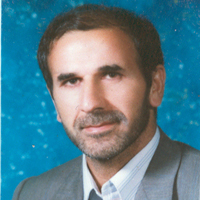The Crisis of 2014 in Ukraine and Its Effects and Consequences for both sides
Every crisis that happens, the nature and messages of the actors are different. In other words, domestic crises have domestic effects and consequences, and international crises have international effects and consequences. The crisis may not be an exception to this rule and it has results and consequences, and these consequences will definitely expand with its continuation, but it can be recognized according to the effects of all and its consequences. What is certain is that this is the main cause of this crisis. Ukraine is a country with a special geopolitical position between the European Union and Russia. This geopolitical situation has caused Ukraine to inadvertently enter into international conflicts, which have generally been between the three powers of Russia, the European Union, and the United States. In fact, Ukraine has been a victim of geopolitical danger, which has always caused many conflicts and displacements in this country throughout history, and this issue has made it unable to have an independent internal policy and always fluctuate between the East and the East. The crisis of 2014 (Ukraine), which arose after the non-signing of the cooperation agreement between Ukraine and the European Union, can be considered in the framework of competition between great powers.
A question has been raised about this research, what is the impact of this crisis and does it have any consequences for European countries, Russia, Europe and the United States?Research Hypothesis: Every crisis that occurs has different nature and effects, actors and messages. In other words, domestic crises have domestic effects and consequences, and international crises have international effects and consequences. The crisis may not be an exception to this rule and it has results and consequences, and these consequences will definitely expand with the continuation of the crisis, but it can be recognized due to the continuity of all its effects and consequences. What is certain is that this issue is the main cause of this crisis.
The research method is descriptive-analytical in the form of a qualitative method based on content analysis and using the threat balance theory as an intellectual framework. Stephen Walt believes that governments not only balance against power, but may also balance against threats. Walt believes that the threat is the core of countries' concern. To understand the extent of the threat, factors such as threatening intentions and behavior, geographic proximity, and offensive power of the threat source must also be considered. The situation of Ukraine is such that this country is placed between Russia and the West, and if each of the parties dominates this country, they will be in a higher position and will subsequently gain the ability to create threats. Russia felt threatened by Ukraine joining the European Union and NATO and considered it a strategic threat and reacted to it. In fact, Russia's sense of danger from the emerging threats led this country to adopt a balancing act against other powers.
The crisis of 2014 in Ukraine, which led to the non-signing of the cooperation agreement between the representatives of this country and the European Union, can also be considered against this power. Yanukovych announced that he has no ally to join the European Union. This was followed by a demonstration in Kyiv’s Independence Square protesting Yanukovych's decision not to join the European Union. The demonstration turned violent. Following these developments and the deterioration of the local internal situation, Viktor Yanukovych was removed from the presidency, elections were held on May 25, 2014, and Petro Poroshenko was elected as the President of the Republic. Following these incidents, serious protests started in the east and south of the country. On February 26, pro-Russian separatists took control of the Crimean Peninsula. A few days after these events, on March 16, 2014, the people of Crimea joined Russia by holding a referendum, and this peninsula became part of Russian territory. After Crimea’s independence, separatists demonstrated in Luhansk and Donetsk, demanding secession from Kyiv. With the efforts of the Organization for Security and Cooperation in Europe, the warring groups signed the Minsk Protocol in September 2014 with the aim of a ceasefire. After a month-long ceasefire, a second Minsk agreement was signed in February 2015 by the leaders of Britain, Russia, some French and German officials to revive the previous agreement. Therefore, the consequences of this crisis are not limited to everyone, but it has many effects and consequences for all parties involved.
The crisis of 2014 was the result of the friction of the great powers, as well as the readiness of the internal conditions in Ukraine. Following this crisis, the demarcations of the Cold War era were reestablished, but in this period the competition was more economic and both sides benefited more from economic and political tools. EU-Russia relations were at a high level before the crisis, the volume of trade between these two powers was high, and these relations were not suitable for the United States because by destroying Russia, the world was moving towards multipolarity. This leads to a situation in which the United States can no longer exert power alone as a hegemon. Therefore, with this crisis, the relationship between Russia and the European Union has decreased significantly, and the European Union has approached the United States to deal with Russia and has increased its relations with this country.
- حق عضویت دریافتی صرف حمایت از نشریات عضو و نگهداری، تکمیل و توسعه مگیران میشود.
- پرداخت حق اشتراک و دانلود مقالات اجازه بازنشر آن در سایر رسانههای چاپی و دیجیتال را به کاربر نمیدهد.



